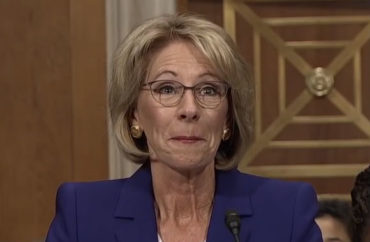2020 will be a year in which institutions of higher education (IHEs) suffer heavy financial losses. The COVID-19 shutdown is costing them many millions of dollars in lost revenues.
Significant losses due to mounting litigation are also at an all-time high. Never before have costs been higher for IHEs to defend themselves in lawsuits brought by alleged sexual assault perpetrators or victims claiming mistreatment by their institutions. IHEs must implement policies and procedures to reduce the high cost of sexual assault claims.
In 2017 United Educators (UE), which provides liability insurance to more than 1,600 schools around the country, launched its Canopy risk management program. Canopy has issued two White Papers on campus sexual assault: “The High Cost of Student-Victim Sexual Assault Claims” (1) and “Sexual Assault Claims: Perpetrator as Plaintiff” (2).
The reports document that between 2011-2015, sexual assault claims resulted in losses averaging nearly $350,000 each, with a few causing losses that exceeded $1 million. Losses in claims by accused students were driven by defense costs, which accounted for 71% of losses. Total losses due to perpetrator claims were almost $9 million, with total defense costs $6.3 million.
Lawsuits by alleged perpetrators or victims included allegations of breach of contract, Title IX violations, and negligence. Alleged types of misconduct by university personnel included the following (2):
- Failure to properly train staff on institutional policies
- Flawed reporting processes that discouraged complainants from reporting assaults
- Unclear policy language with insufficient written descriptions of policies and procedures
- Poor investigative practices with inadequate investigator training and lack of clarity about the investigator’s role
- Problematic adjudication practices, including poor selection of hearing panelists and inadequate training of hearing officials
Recurring patterns in the United Educators’ claims database reveal a number of needed actions to address sexual violence. Specifically, institutions should ensure that:
- Title IX coordinators and investigators have appropriate training or experience and clarity on their roles,
- Employees have a clear understanding of reporting obligations,
- Sanctions are consistently and fairly applied, and
- Campus officials respond quickly to retaliation reports.
UE also noted that alleged “Victims and perpetrators are equally entitled to know what to expect during the school’s internal process” and usually, “both parties to a campus sexual assault matter are the institution’s students and are entitled to the same procedural protections and general equitable treatment.” (3)
But instead of heeding this advice, Title IX coordinators have continued to take actions that place their universities at risk for future litigation.
In March, 2020 it was reported that over 600 lawsuits have been filed on behalf of students (and some school personnel) accused of Title IX-related offenses (4). Numerous high profile cases, such as the complaint against Baylor University (5) and Penn State University’s handling of the Jerry Sandusky case (6) have been featured in national news reports spotlighting institutions’ failure to protect victims.
Complaints alleging Title IX violations also can be opened for investigation by the U.S. Department of Education’s Office for Civil Rights (OCR), resulting in a time-consuming and expensive process for these schools. The University of Southern California (7) and Michigan State University (8) are two recent institutions that were investigated by OCR, resulting in sweeping changes or record fines due to their mishandling of sexual assault claims.
The U.S. Department of Education’s upcoming Title IX regulation will provide both a regulatory framework and procedural guidance so Title IX coordinators can provide a consistent, reliable response to an allegation of sexual assault. All of the above-listed actions from United Educator’s reports are addressed in the new regulation. Compliance with the regulation should result in fewer lawsuits against universities.
Title IX coordinators should embrace the new Title IX regulation to bring an end to the problematic policies and procedures that have resulted in significant financial losses to their institutions.
Citations:
1. https://static1.squarespace.com/static/53e530a1e4b021a99e4dc012/t/590501f74402431ac4900596/1493500411575/FN-+RE-+2017.04-+High+Cost+of+Student-Victim+SA+Claims.pdf
2. Canopy, “Sexual Assault Claims: Perpetrator as Plaintiff” (content no longer available on the internet)
3. https://static1.squarespace.com/static/53e530a1e4b021a99e4dc012/t/590501f74402431ac4900596/1493500411575/FN-+RE-+2017.04-+High+Cost+of+Student-Victim+SA+Claims.pdf
4. https://www.titleixforall.com/
5. https://www.espn.com/college-football/story/_/id/24090683/baylor-university-settles-title-ix-lawsuit-which-gang-rape-8-football-players-was-alleged
6. https://www.thefire.org/ocr-penn-state-violated-rights-of-both-complainants-and-respondents-in-title-ix-proceedings/
7. https://www.ed.gov/news/press-releases/secretary-devos-requires-sweeping-changes-usc-after-title-ix-investigation-finds-university-failed-years-protect-students-sexual-abuse
8. https://www.freep.com/story/news/education/2019/09/05/msu-fine-larry-nassar-betsy-devos/2219781001/



 Title IX coordinator spills the beans on ‘delay strategy’
Title IX coordinator spills the beans on ‘delay strategy’

 Damning conclusions in spite of many caveats
Damning conclusions in spite of many caveats
